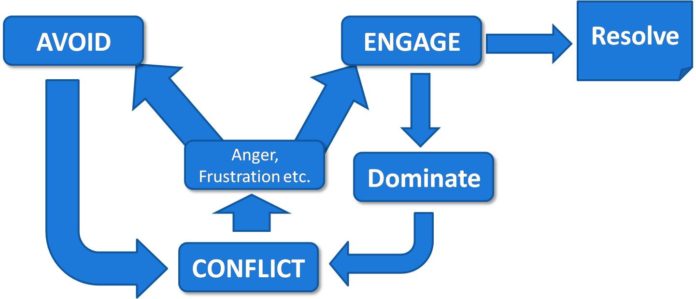The lease has been signed after you have verified the credit and background of a tenant, all is good, right? Not always.
What do you do when neighbors start complaining about unruly behavior taking place at your rental property?
Or when the police show up as a result of a noise complaint?
The reality is, it’s hard to screen for behavior. Sure, it makes sense to seek and verify references from prior landlords but it is likely that at some point, you are going to have to deal with difficult tenants. Perhaps they disrupt the neighborhood. Maybe they consistently pay late, or are always complaining about something related to the property that you do not see eye to eye on. At the end of the day, if the tenant has not violated the conditions of the lease and yet, you are struggling to get on the same page, you are going to have to deal with it, and having some conflict resolution skills is a good tool to have in your kit.
Communication is key to resolving these matters, especially when you are in a situation in which you have to continue working with this person (or people) who are going to be in the property for a certain period of time. After all, you do not want the property to be mistreated, nor do you want to be the victim of a one-sided, nasty online review.
The good news is that you have a common connection. The tenant views the rental property as their home, at least while living under the conditions of the lease, and you have a financial interest in the property.
With that said, it is good practice to have a conversation with the tenant about whatever it is the conflict is related to.
This is a good opportunity to clarify the dispute and get on the same page. If the conduct is a direct violation of the lease, then you have a legal document which most likely outlines consequences. Perhaps the matter is not related to a lease violation and falls into more of a grey area. This is where it is important to clarify whatever the dispute is and establish a common goal for both parties. From there, discuss how to reach the common goal and then determine if there are any barriers that would prevent each party from achieving that goal. Determine how to work through said barriers in an effort to meet the outlined goal, then highlight each person’s role in achieving this goal. Once this is done, outlining the discussion in writing and sharing it with the tenant via letter or email is good practice. This gets everyone on the same page and is a good opportunity to reinforce your expectations in writing.
It is important to do your best to get in the corner of the tenant and establish shared interests whenever possible. If they view you as an opposing force, you are likely to get the same outcomes that put everyone in the situation to begin with (again, this is only if the behavior is the grey area which does not violate the terms of the lease). The goal is to work with this person so that you do not have an ongoing situation during the life of the lease, as this is emotionally stressful and time consuming.
If there are issues, it is similar to a noise in your car…it is less likely that it will just go away and more likely that it will get worse with time. By having tools that will help you take a proactive step in conflict resolution, you are protecting your asset and your time from trouble in the future.














